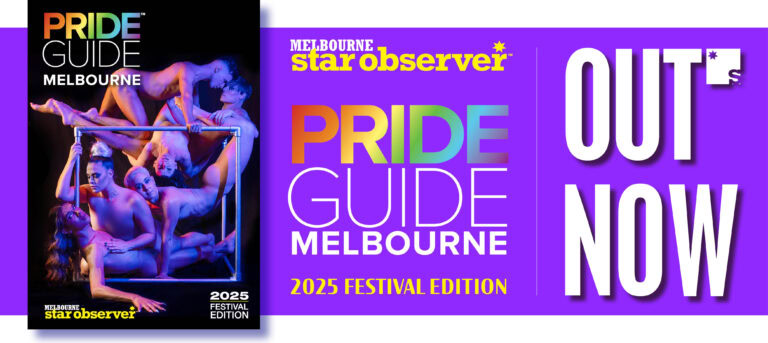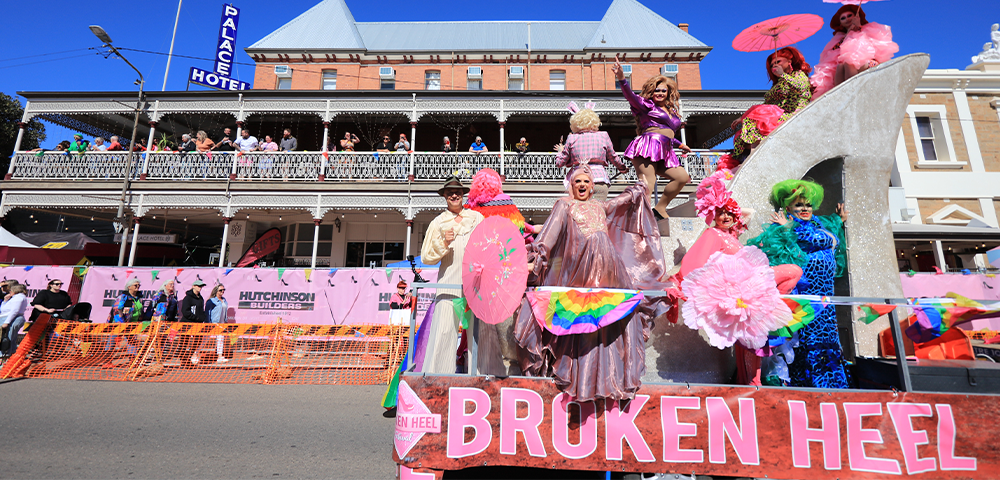
‘People still use clean or dirty to describe HIV status’: challenging stigma around HIV
Stigma has become the number one issue affecting HIV-positive people in Australia. Jess Jones spoke with a handful of advocates about why we need a cultural shift when it comes to the virus.
***
Former footballer Matt Hall was banned from playing Australian Rules because of his HIV status.
He was only 23 and at the time, HIV was still a “death sentence”.
“Going through the public health system at the time wasn’t really good for your emotional health,” he says.
“You went to the infectious disease ward and walked past people who were dying of AIDS, still dealing with the shock of your own mortality as well as coming to terms with your sexuality.
“They basically said, ‘At this point you can expect five years of relatively decent health, and then after that… prepare yourself for the worst case scenario.’ You’d just walk out in tears.”
It was after being given this grim prognosis that another HIV specialist put him onto antiretroviral therapy, and within three months his viral load was undetectable.
HIV is now eminently controllable with medication, and the larger issue for many people living with the virus is how they’re perceived by broader society.
A recent report by ViiV Healthcare, Critical Steps Towards Addressing HIV in Australia, revealed that stigma is now the top issue affecting people living with HIV and their quality of life.
Hall made the decision in 1998 to return to football, under advice from his doctor that his HIV status represented “zero risk” to others—decades ahead of the current campaigns advocating that undetectable equals untransmissible.
Hall says most of his footy mates already knew he had HIV, thanks to locker room gossip.
“Everyone knew, because it was such a shocking diagnosis, this killer virus,” he says.
“I trained, and put in my registration to play, and the club wrote across my registration form: ‘please note this player is HIV-positive’.”
When he turned up to the first game, Hall was told the company that insured players had refused to cover him and that he was banned from playing.
Hall challenged the decision, going through a harrowing court case that drew a lot of media attention. He had to hear strangers on the radio discussing him, calling him selfish, and a risk to the health and safety of others for wanting to play football.
“It was distressing,” he recalls.
“It was overwhelming, it was confronting, it was hurtful. I felt bullied. The media was in a frenzy and every report was negative.”
After a trial by media and eventually in court, the scientific evidence that Hall’s HIV status presented no risk to anyone on the football field prevailed, and he was finally allowed to return to the game.
The process of fighting to play the game he loved again was traumatic for Hall, but it was far from the only time he was treated poorly for having HIV.
At the time of the court case, he was working in hospitality. Regular customers, now aware he was HIV-positive, suddenly wanted nothing to do with him.
“Patrons I’d served for years went to the owner and said they never wanted to be served by me again,” he says.
Only a few years ago, Hall’s sexual orientation and HIV status were outed after seven successful years in a corporate role. A month later the board of the organisation found a reason to fire him, leading to a serious depressive episode.
“I didn’t take it to court because I just didn’t have the strength,” he says.
Despite all his challenges, Hall is an overachiever. He is now a Lifeline counsellor and a speaker with the Queensland Positive Speakers Bureau, among other roles. He has a master’s degree in sport management and has even walked the Kokoda Track.
Stigma is getting better over time, Hall says, but it’s still there.
“We experience stigma in the workplace, in relationships, on social media,” he says.
“People still use ‘clean or dirty’ to describe HIV status. It’s still in the vernacular. It’s a slow process of improvement.”
Stigma remains one of the most pressing issues affecting people living with HIV in Australia. Research continues to show a large proportion of the general public have discriminatory attitudes about HIV, and people who are positive are frequently afraid of being shamed or hurt because of their status.
“While there have been many incredible medical and scientific advances in HIV, what hasn’t diminished is the stigma around HIV and the negative community attitudes towards people living with HIV,” says Queensland Positive People executive officer Simon O’Connor.
“Unrelenting stigma can cause people living with HIV to internalise the community’s detrimental perceptions of HIV, which can result in trauma, isolation, and psychological impacts.”
O’Connor says stopping the fear around HIV is crucial.
“For stigma to be decreased and hopefully eliminated altogether it will take a community response,” he says.
“We call for zero tolerance of stigma and discrimination.”
Dai Aoki was diagnosed with HIV not long after he migrated to Australia from Japan 15 years ago.
He’s single, and finds a lot of guys reject him as a sexual partner because of his HIV status.
“I believe that is coming from fear of the unknown about HIV,” he says.
“On a hookup site we might be chatting for three months and finally we try to meet each other. I mention ‘Have you read my profile?’, because I disclose my HIV status there. And a few times they disappear after they see my profile and realise I’m positive. They’re scared, I don’t know.”
Aoki says that kind of rejection makes him feel stigmatised and hurt.
“It hurts but I can cope with rejection,” he says. “It’s their issue.
“Other guys with HIV, they don’t have the same confidence, so it must be hard for them.”
Aoki had trouble becoming a permanent resident of Australia because of his status.
“Immigration doesn’t want a HIV-positive person to come into the country,” he says.
“My first application was rejected because of being HIV-positive.”
His second application involved extensive paperwork including medical reports from multiple doctors.
“Fortunately in my case, three years later, the Australian government granted my application and I got permanent residency,” he says.
Aoki says he was lucky to only have to re-apply for residency once—other migrants living with HIV face longer bureaucratic battles before they are approved. He has since become a citizen.
Sydney-based Aoki works for ACON, a health promotion organisation that specialises in HIV prevention and support. He also works with Positive Life NSW as a public speaker, sharing his story with others to help them understand what living with HIV is like.
Aoki is concerned that while most gay people are reasonably well informed, the heterosexual community in particular doesn’t know enough about HIV.
“People still believe if you have HIV you will die,” he explains.
“Some people think that kissing passes HIV.”
Overall, though, Aoki thinks the way people think about HIV is getting better in Australia, and credits organisations that educate the community about it.
“In Japan we don’t want to talk about HIV,” he says.
In his spare time, Aoki is also a famous dog trainer. He has quite an online following, and uses social media to advocate for people with HIV. He hopes that by normalising HIV to his fans, some of the stigma might be diminished.
“I’m open that I’m HIV-positive and I’m healthy,” he says.
“I’m using that platform to spread the word about HIV.”









